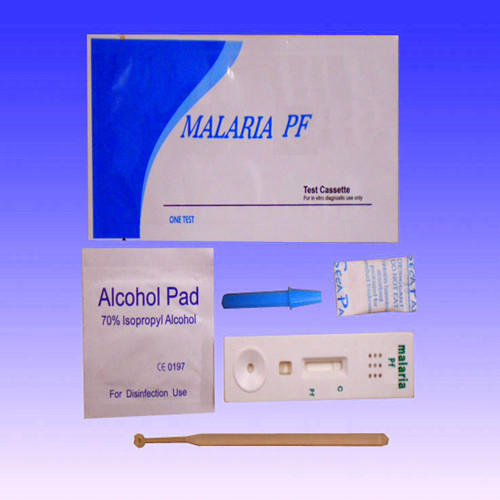
If you're interested in earning a health care degree online, then you've come to the right place. We will discuss the benefits, requirements, costs, and available Programs. Continue reading for more information. The fastest and most efficient way to earn a degree in health is online. However, there are important considerations. These are some of the key points:
Earning a degree in health care online has many benefits
There are many advantages to earning a online degree in health-care management, such as the ability to work from anywhere and at any time, flexibility in scheduling, cost savings and accessing support resources. You can access your coursework from wherever you are, so that you're never late to a class. Additionally, you can continue to work in your current role while earning your degree. Earning a health care degree online allows you to personalize your schedule and study when it works for you.
The healthcare industry is a growing industry, and it requires well-qualified leaders who know how to lead it. An online health care degree allows you to study while maintaining a full-time job, or caring for your family. According to PayScale, the average annual salary for health care professionals ranges from $48,000 to $170,000. You can earn a degree in health care online, which is the best way to get started. There are so many careers out there.

How to earn an online degree in Health Care
The requirements to pursue a degree in online health care are identical to those required for traditional institutions. A cumulative grade point average (CGPA) of 2.5 is required. You must also have at least two years' experience working in a US health care environment, including direct patient contact or administration of health care services. Online education is possible if you do not have any prior experience.
An online degree in healthcare can help you land a job in the medical industry. An Associate's in magnetic resonance imaging can prepare you for a entry-level position. Most courses cover fundamental topics in human anatomy, physiology, basic sciences, and advanced imaging. You can even select a specialty track to complete your nursing degree. During your online degree, you will take classes in health assessment, clinical research, and diverse theories of caring.
Programs that can be accessed online
A Bachelor of Science (or Associate of Arts) in Health Sciences or a Bachelor in Health Administration can help you get a job as a manager in a healthcare institution. Health professionals must have both management and medical knowledge due to increasing aging and fewer Baby Boomer children. A Bachelor of Science in Health Administration or an Associate of Arts in Health Sciences can lead to a graduate-level certificate in health administration.
You can find many programs online. The Bachelor of Science in Applied Health, a program that combines scientific knowledge and cultural histories, is an example. Students will have the opportunity to complete specialized courses as well and do an internship according to their interests. This degree requires a GPA of 2.0, and can be completed in as little as eight semesters. To be eligible for financial aid, applicants must be enrolled at a college/university. Major courses include Public Health Emergency Preparedness and Communicable Diseases. Students can also take a capstone/internship course to explore their interest in public health practice and find career opportunities in this field.

Earning a online health care degree is expensive
The cost of an online bachelor’s in health science may be something you should consider. While it will take the same amount of time and cost the same as an on-campus degree, the cost will not be as high. Online degrees are typically three to four year long and require 120 credits. Private schools can charge close to $11,000 per credit, while in-state public colleges cost $310. However, you will need to consider the costs beyond tuition and other fees associated with the education.
In addition to the costs, you may also qualify for work-study jobs available through many universities and colleges. Work-study money is available through federal funding for student jobs. This option is more affordable for students attending campus-based colleges. Private and government scholarships are also available. While you may be already receiving scholarships from your university, it is worth looking for other ways to make money.
FAQ
How can I get my free health insurance?
You may be eligible to apply for health insurance free of charge if you are. You may be eligible for Medicaid or Medicare, CHIP. Children's Health Insurance Program, (CHIP), Tricare. VA benefits. Federal Employee Health Benefits. (FEHB). Military health plans. Indian Health Service (IHS).
What happens if Medicare disappears?
There will be an increase in the number of uninsured Americans. Employers will be forced to terminate their employees' plans. Senior citizens will have to pay higher out of pocket for prescription drugs and medical services.
What is the difference between the health system and health care services?
Health systems are broader than just healthcare services. They include everything that occurs in the overall context for people's lives, including education and employment as well as social security and housing.
Healthcare services focus on specific conditions like cancer, diabetes and mental illness.
They could also refer to generalist primary care services provided by community-based physicians working under the supervision of an NHS trust.
What's the difference between a doctor, and a physician?
A doctor is a person who has successfully completed their training and is licensed to practice medically. A physician is a doctor who specializes in a particular area of medicine.
Statistics
- The healthcare sector is one of the largest and most complex in the U.S. economy, accounting for 18% of gross domestic product (GDP) in 2020.1 (investopedia.com)
- For instance, Chinese hospital charges tend toward 50% for drugs, another major percentage for equipment, and a small percentage for healthcare professional fees. (en.wikipedia.org)
- Price Increases, Aging Push Sector To 20 Percent Of Economy". (en.wikipedia.org)
- Foreign investment in hospitals—up to 70% ownership- has been encouraged as an incentive for privatization. (en.wikipedia.org)
- The health share of the Gross domestic product (GDP) is expected to continue its upward trend, reaching 19.9 percent of GDP by 2025. (en.wikipedia.org)
External Links
How To
How to Locate Home Care Facilities
Home care facilities assist people who require help at home. Home care facilities can be used by elderly or disabled individuals who are unable to get around on their own, as well those suffering from chronic diseases like Alzheimer's. The services offered by these facilities include personal hygiene, meal preparation, laundry, cleaning, medication reminders, transportation, etc. They often collaborate with rehabilitation specialists, social workers, and medical professionals.
It is best to get recommendations from your friends, family, and local businesses. After you've identified one or two providers you can start to ask about their qualifications, experience, and references. Look for providers that offer flexible hours to accommodate your needs. Check to see if there is an emergency response available 24/7.
It might be worth asking your doctor/nurse for referrals. If you don’t know where to begin, search online for “home health care” or “nursing home”. For example, you could use websites like Yelp, Angie's List, HealthGrades, or Nursing Home Compare.
To get more information, call your local Area Agency on Aging and Visiting Nurse Service Association. These organizations will keep a list of local agencies who specialize in home care.
Many home care agencies charge high rates for their services. This makes it important to find the right agency. In fact, some agencies charge up to 100% of a patient's income! It is best to avoid this problem by choosing an agency with a high rating from the Better Business Bureau. Ask for references of previous clients.
Some states even require home care agencies to register with the State Department of Social Services. You can check with your local government to find out which agency registration requirements apply.
When choosing a home-care agency, there are several things you should keep in mind:
-
Be cautious of companies that require you to pay upfront in order to receive services.
-
Choose a well-established, reputable company.
-
Get proof of insurance, especially if you're paying out of pocket.
-
Verify that the state has granted the agency license.
-
Request a written contract outlining all costs associated with hiring the agency.
-
Check to confirm that the agency offers follow-up visits following discharge.
-
Ask for a listing of certifications and credentials.
-
You should not sign anything without thoroughly reading it.
-
Take the time to read all fine print.
-
You should verify that the agency you are dealing with is insured and bonded.
-
Ask how long the agency is in operation.
-
Verify that the State Department of Social Welfare licenses the agency.
-
Find out if there are complaints against the agency.
-
Your local government department can regulate home care agencies.
-
Check that the answering service is certified to answer questions regarding home care.
-
For tax information on home care please consult your accountant.
-
Always obtain at least three quotes for every agency providing home care services.
-
Do not accept a lower bid than the best, but at least $30 per hour.
-
Be aware that you may be required to pay for more than one visit to a local home care agency each day.
-
It is important to carefully read contracts before you sign them.